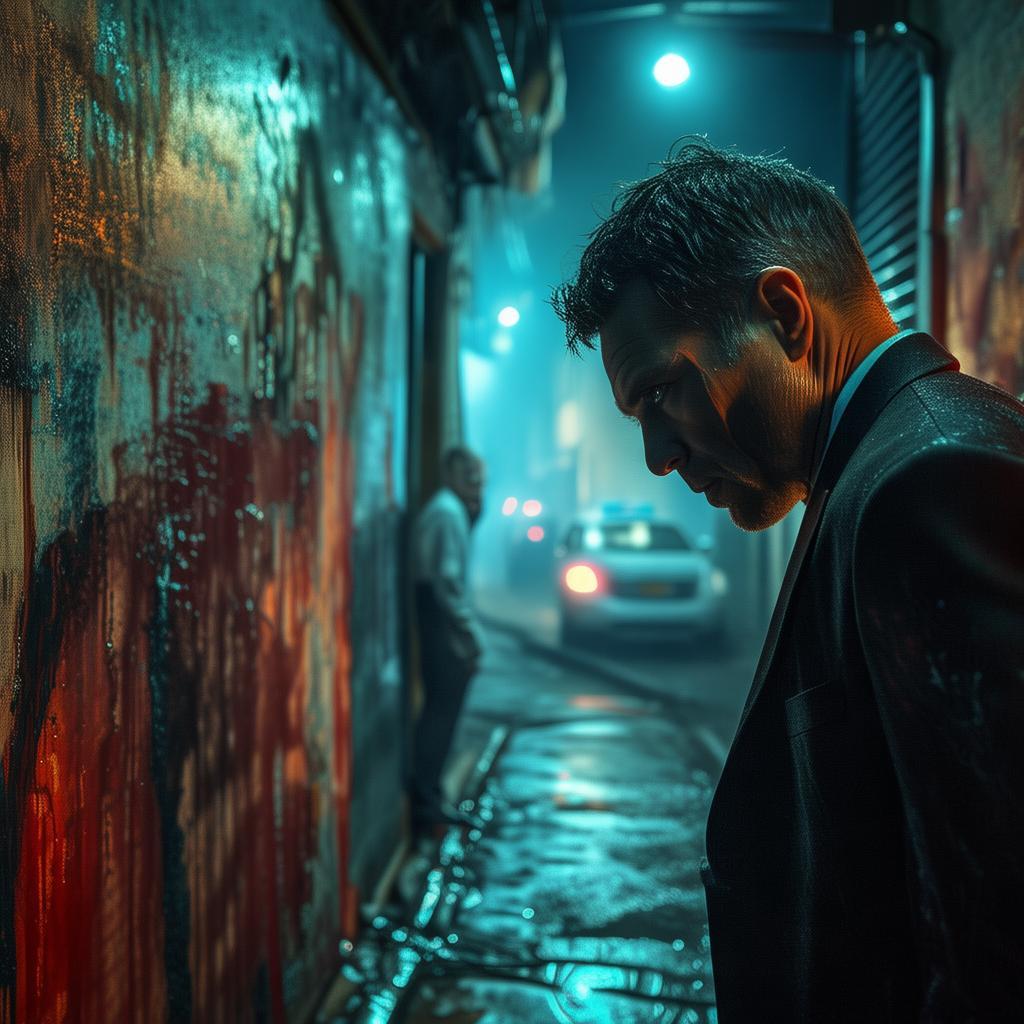Whispers of the Tavern: A Killer's Requiem
The stage was set, not with the usual grandeur of an opera, but with an eerie silence. The Tavern's Rhapsody, a musical drama that promised to tell tales of love, loss, and redemption, had just begun its final performance in the Opera House. The audience, a mix of the curious and the jaded, had gathered to witness the grand finale of this peculiar tale.
At the center of it all was a character named Aria, a woman whose voice was as haunting as her past. She was to play the role of the protagonist, a woman caught in a web of lies and deceit. Aria's performance was nothing short of mesmerizing, her voice a siren's call that drew the audience into the depths of her character's turmoil.
But amidst the applause and the cheers, there was a presence that seemed out of place—a man, dressed in a long, flowing coat, who had slipped into the audience without a word. His eyes, dark and piercing, seemed to bore into the very soul of the stage.
The story unfolded as Aria's character revealed her secret: she was the daughter of a notorious killer, a man who had vanished without a trace after his last heist. The Opera House had been the scene of his final performance, a ruse to lure his target into a trap. Now, Aria was determined to uncover the truth about her father's fate and the secrets he had left behind.
As the drama progressed, the man in the coat began to move through the audience, his eyes never leaving the stage. He was the one who had orchestrated the Opera House performance, the one who had lured Aria into believing she was destined to repeat her father's legacy.
The climax of the story arrived with a twist that no one in the audience could have predicted. Aria, in a fit of rage and desperation, revealed her father's last words to her: "Aria, you must not follow in my footsteps. The world is not a stage for monsters."
In that moment, the man in the coat stepped forward, revealing himself to be Aria's father. He had returned to see his daughter perform, to ensure she did not become another statistic of his twisted legacy. The revelation was too much for Aria to bear, and in a fit of despair, she attempted to take her own life.
The audience gasped as Aria collapsed on stage. The man rushed forward, catching her just as she was about to fall. "No," he whispered, "not like this. Not in the shadows."
In the aftermath, the Opera House was a place of somber reflection. Aria, now alive and with a new understanding of her father's love, vowed to use her voice for good. The man, her father, was given a second chance at redemption, his legacy rewritten by the love of his daughter.

The final act of the musical drama ended with a haunting melody, a requiem for the lives that had been touched by the story. The audience, now a family of sorts, stood and clapped, their emotions a testament to the power of storytelling.
The Opera House, once a place of entertainment, had become a sanctuary for the lost souls who had found solace in the tale of Aria and her father. The Tavern's Rhapsody had not only performed a musical drama but had also played a crucial role in the redemption of a killer and his daughter.
In the end, the Opera House was silent once more, but the echoes of the performance lingered in the hearts of those who had witnessed the tale of Aria and her father. The Tavern's Rhapsody had not only told a story but had also changed lives, a testament to the enduring power of music and drama.
✨ Original Statement ✨
All articles published on this website (including but not limited to text, images, videos, and other content) are original or authorized for reposting and are protected by relevant laws. Without the explicit written permission of this website, no individual or organization may copy, modify, repost, or use the content for commercial purposes.
If you need to quote or cooperate, please contact this site for authorization. We reserve the right to pursue legal responsibility for any unauthorized use.
Hereby declared.









